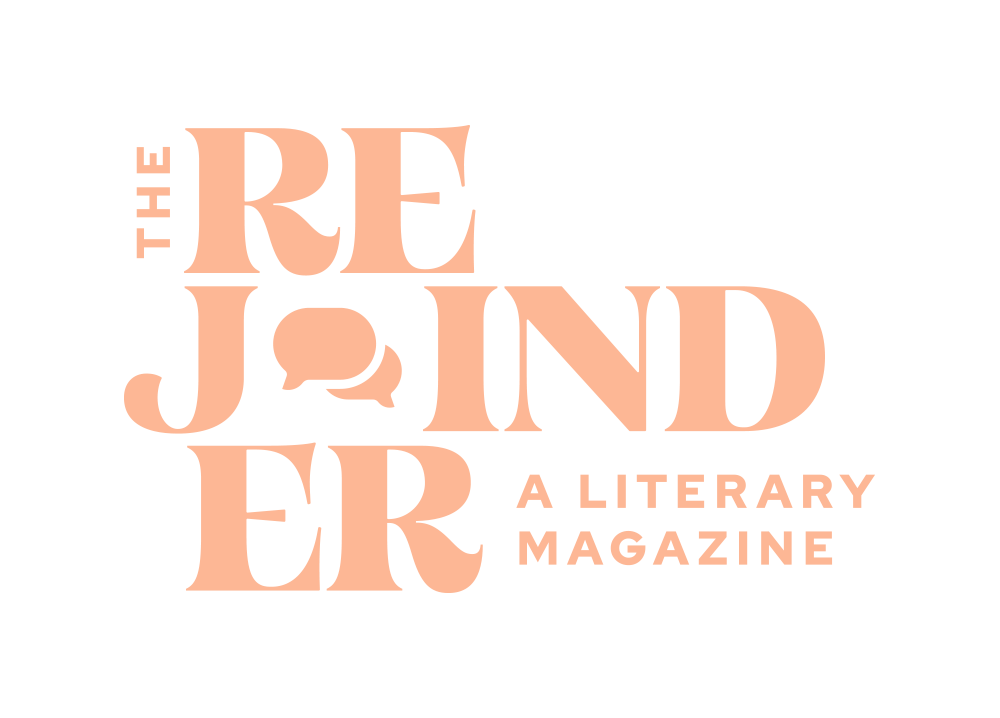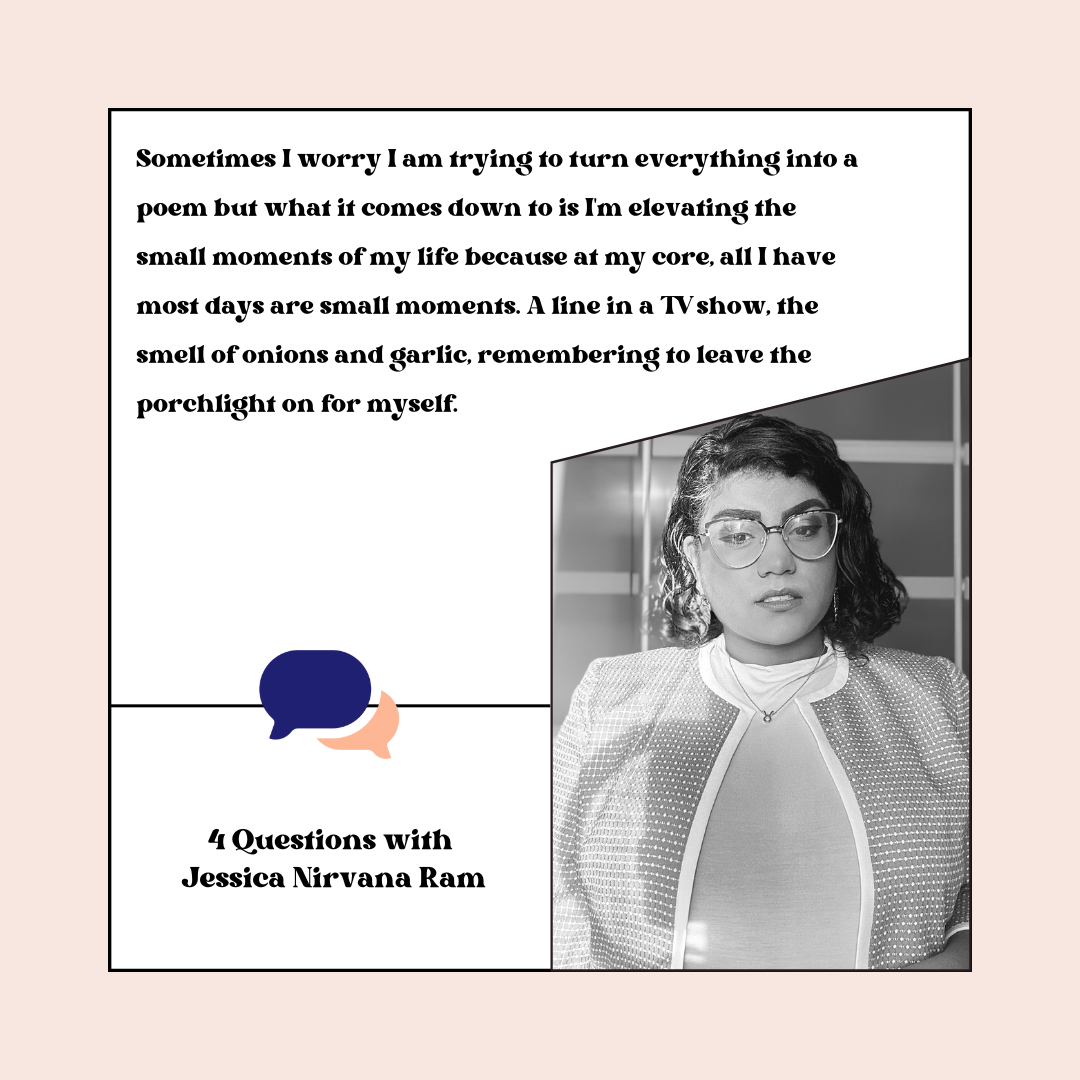4 Questions with Jessica Nirvana Ram
Today we published two poems by Jessica Nirvana Ram: “lost language” and “Love Letter to the Chicken Marsala I Made for Dinner Tonight.” Michael Colbert and Emily Lowe spoke with Jessica about punctuation, food writing, and reverence in her poetry.
Michael Colbert: I know you've used slashes instead of line breaks in some of your work previously. I was really compelled by the effect of this decision in "lost language," where the speaker is haunted by this former relationship. How did these decisions come together in this poem?
Jessica Nirvana Ram: When I use slashes in place of line breaks, my motivation tends to stem from concerns about pacing and wanting control over the rhythm of the poem. When I started this poem it came fluidly, I typed it out on my phone on a plane ride and the slashes happened in the first draft. In a way it mimics a kind of stream of consciousness and I find that it works well for shorter poems. This poem to me is condensed but lingering, like you said a haunting, so if the reader can move through the poem the way I wrote it, I feel like that contains the fluidity and mood I'm trying to convey.
Emily Lowe: Punctuation and capitalization are almost abandoned in "lost language" save for "I" and the powerful line "/was it because I loved you?". I loved these choices and the impact it had on the poem. What determined these choices for you?
JNR: For me, slashes and no capitalization tend to go hand in hand. The slashes are so prominent on the page, they take up physical space, they act similar to a rest on a musical score, they are a breath or a pause even if only for a moment. And part of wanting fluidity means wanting a sort of seamlessness in the poem. Capital letters and punctuation are hard stops, they stand out. I wanted the poem to keep going and going and going. So when I got to the "/ was it because I loved you?" I want the reader to sit with that realization for a moment. To really consider it in the context of the poem before moving forward. There's also the slightest whisper of a nod to my being demisexual with that line, that in order to have sex or be vulnerable in that way there needs to be love or some kind of emotional connection. When it comes to the "I," there's a certain ownership that comes with capitalizing it for me where the lowercase doesn't have enough possessiveness on the page.
MC: I could read your writing about food forever--"Love Letter" is so rich and sensory. Can you speak to the relationship between food and family that you were interested in exploring in this poem?
JNR: Food is a love language for me; growing up I spent a lot of time in the kitchen watching my grandmother, my aunties, my mother. It was a skill I learned through osmosis, this patient observing, memorizing the way the knife moved or how many shakes of a spice were dashed into a dish. It was about learning to feel things in the cooking, in the food, that there is more to a recipe than simply ingredients. There's a reason your mom's food always tastes better than any replication you might be able to make. It is something intangible. So for me food is a direct line back to my family, to my friends. This idea of a love letter to a recipe is becoming something of a series in the manuscript I'm currently working on, and the second poem connects back to friendships. Really I think cooking is a way for me to feel less alone because any time I cook it is a culmination of everything I've ever witnessed from people I've loved. It is a gift. A labor of love. An act of continued care.
EL: I am compelled by the act of work depicted in "Love Letter," through the care and effort the speaker puts into making the recipe. It seems to elevate the act of cooking into something revered. How does poetry elevate moments of everyday life for you? What else do you revere in your writing?
JNR: I think as a poet I romanticize everything. Every small detail, every minor obsession, every gust of wind is significant. I recently reread Jane Wong's How to Not be Afraid of Everything and she has a poem "What is Love if Not Rot" where it catalogues a time lapse of a rotting orange and equates it to love (which is the most boiled down description, this poem is stunning). That's what poetry does for me. Sometimes I worry I am trying to turn everything into a poem but what it comes down to is I'm elevating the small moments of my life because at my core, all I have most days are small moments. A line in a TV show, the smell of onions and garlic, remembering to leave the porchlight on for myself. I'm single and I live alone, I have to value every moment with myself otherwise what kind of life is that? What else do I revere in my writing–everything really. Family, friendships, food, god, sex. If I can find an excuse to worship something I will fall to my knees almost immediately.

